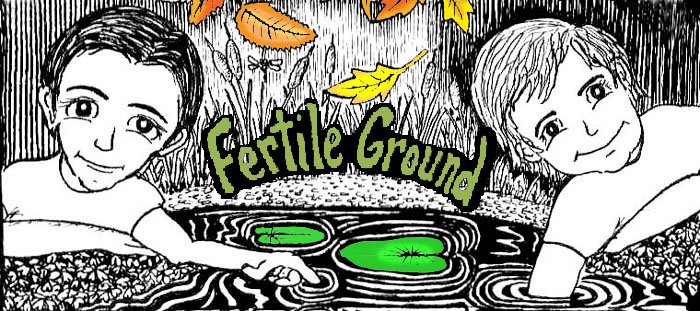
Did you know that migratory birds are protected by the federal government? The Migratory Bird Treaty Act (MBTA 16 USC 707) protects birds, nests and eggs. Generally, all wild birds except house sparrows, starlings, rock pigeons, monk parakeets and non-migratory (upland) game birds fall under this treaty.
Intentionally harming protected birds or disturbing their nests and/or eggs is a misdemeanor and comes with a very steep fine of $15,000 per bird, 6 months in prison, and/or strict liability. (Commercialization of these birds is a felony and comes with a fine of $500,000 per bird, 2 years in prison, and/or strict liability.)
As our feathered friends begin nesting, please be extra careful when trimming your trees, exploring nature with your family, and allowing cats to roam outdoors. It is especially important to teach your children not to remove nests, eggs, or baby birds from trees.
The local website Wild Wing Rescue has a lot of good information on what to do if you find a baby bird.
Top priority is to find the nest and return the baby (if the baby is healthy). Watch from a distance to see if the bird's parent returns. This could take at least an hour, so be patient. Birds have a very poor sense of smell, and cannot tell if humans have touched their chick.
If the baby is a nestling (has skin showing), it cannot survive on its own or in a box. It must be returned to its nest. If that is not possible, it should be kept very warm with a cloth and a hot water bottle (or a latex glove filled with warm water)and taken to a trained rehabilitator immediately. It is best not to feed baby birds.
It is fairly common to see fledglings (fully feathered) hopping around on the ground alone. This is how they learn to fend for themselves. Observe the fledging from a distance and remove anything that might cause it immediate danger, like a cat. Chances are its parents will come find it within an hour.
If a bird is injured, then it needs to be rescued immediately. Here's what to look for:
• Failure to flee or sleeping when approached
• Found lying around or in the mouth of a cat or dog
• Acting confused or dazed
• Bleeding or drooping, hanging wing, or one held higher than the other
• Staggering or limping
• Difficulty controlling head and neck
• Crusty eyes or beak
• Missing or matted feathers
April through August is a busy time of year for Wild Wings Rescue. Birds are accepted from 8 a.m. to 6 p.m., everyday including holidays. Please call every 10 minutes until you reach them. Unfortunately, they are unable to do pickups. During power outages, the bird may be brought directly to Wild Wings Rescue if you can't reach them by phone. Never leave an animal in a box outside their door unattended.
Wild Wings Rescue
2299 Jefferson Avenue
Memphis, TN 38104
(901) 725-7015
I had a chance to visit Brenda Bostick, our area's only trained bird rehabilitator with federal and state permits, last Friday to see what she does on a daily basis to nurse injured and orphaned birds back to health and release them back into the wild.
Created with Admarket's flickrSLiDR.
Brenda has a small area in her kitchen where she can examine and treat birds. Once they are stabilized they are moved into her dining room where they are either put into makeshift nests or small cages. It is important that injured birds have a safe place to rest and heal. Nestlings must be kept warm and fed every twenty minutes!
Brenda and her husband use medicine droppers to feed the baby birds FONS, which is a "baby formula" made from special cat food, water, egg whites, vitamins, and yogurt cultures. They also gut worms to feed to hatchlings. (Older birds eat a variety of worms--trout, meal, earth, red--that Brenda orders off of the internet and from local vendors.)
Some of the birds like privacy; some prefer to be with other birds. Brenda puts a mirror in front of the nestlings so that they know they are birds and not little humans. When they are ready, Brenda allows them to roam in the dining room and/or go in the backyard for some fresh air. For instance, Brenda has a baby duck that she keeps inside, but he goes outside to play with two other, older ducks several times a day.
Brenda's backyard also has an aviary. When the birds have healed from their injuries or are old enough, they will be moved outdoors full-time. The aviary provides a predator free space in which to learn to forage, fly, and see the elements. After a week or two in the aviary, the birds are set free. Sometimes birds will hang around Brenda's backyard for awhile, getting their bearings, but none of them can resist the call of the wild.
"No animal wants to be in a cage," Brenda says.
Brenda uses her own time and money to care for the birds. It costs Brenda about $30 per bird for rehabilitation. Currently Brenda has 30 birds. (Typically she treats about 250 a year.) Brenda has a handful of volunteers who help her care for the birds, but she is still pretty much housebound between April and August. If you would like to help out, visit Wild Wings Rescue.






1 comment:
Stacey, thank you so much for doing a *wonderful* story on Wild Wings Rescue!! Your photos are really nice and your story is absolutely perfect. I believe the information you provided will ultimately help a lot of baby birds during baby season and get good information in the hands of those seeking help with a baby bird. It was a pleasure meeting you and I hope to meet your family sometime.
Brenda
Post a Comment